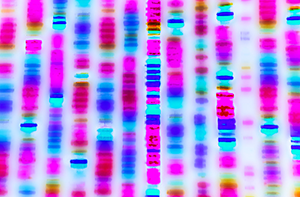New findings from researchers at Memorial Sloan Kettering Cancer Center published by Nguyen et al in Cell support an emerging framework in cancer science that views metastasis as not primarily driven by genetic mutations, but rather, by epigenetic changes that occur in cancer cells because of their interactions with normal cells in the surrounding environment.
This new data helps shed light into the mysteries surrounding cancer metastasis, which causes 90% of cancer deaths today.
Almost 6 years ago, a collaborative effort began to determine whether it would be possible to predict the organs a tumor would metastasize to based on the tumor’s genomic profile alone. Specifically, researchers wanted to know whether certain mutation—or groups of mutations—correlate with the spread of cancer to particular organs across many different cancer types.
“While we did find some gene mutations to be slightly more common in tumor samples with specific metastatic transitions, we found no single gene that, when mutated, will predict a tumor’s likelihood of metastasizing to a particular organ,” said lead study author Nikolaus Schultz, PhD, a computational oncologist in the Department of Epidemiology and Biostatistics and Head of Knowledge Systems in the Marie-Josée and Henry R. Kravis Center for Molecular Oncology at Memorial Sloan Kettering.
Using complex computational techniques, the team drew data from MSK-IMPACT, a unique tool that looks for mutations in over 400 cancer-associated genes and helps clinicians select treatment based on a single genomic alteration. Since 2014, Memorial Sloan Kettering has compiled the genetic tumor profiles from thousands of people, including 25,000 patients across 50 different cancer types who had both their primary and metastatic tumors sequenced (which were analyzed during this project).

Photo credit: Getty
Genomic Findings
At the highest level, the data showed that metastatic disease is genomically different from primary disease. In many—but not all—cancer types, metastatic tumors have more of what geneticists call DNA-copy number changes compared with primary tumors. A DNA copy-number change occurs when a particular segment of DNA is present in greater or fewer than the normal number of copies. These copy-number changes, when observed in primary tumors, were an indicator of metastatic potential. In addition, some cancer-driving mutations were detected at different frequencies in metastases compared with primary tumors across different cancer types.
Exploring the ramifications of this data and other findings will be the focus of Memorial Sloan Kettering’s new Marie-Josée and Henry R. Kravis Cancer Ecosystems Project. This project aims to create a new generation of therapies rooted in the understanding of both the intrinsic drivers of cancer, including genes, and emerging insights about the environment that nurtures and sustains these dangerous cells. This ambitious research and technology development effort approaches cancer as a systemic disease—one that begins in a single location but relies on conditions throughout the body to thrive, grow, and spread.
Altogether, there is potentially so much more information to be uncovered in the mass sequencing and associated patient clinical data that could help inform treatment decisions. To help researchers mine these new data for additional insights, the Memorial Sloan Kettering team is making them publicly available through the cBioPortal for Cancer Genomics at MSK-MET (Memorial Sloan Kettering-Metastatic Events and Tropisms).
“When properly mined, this data could tell us a lot more about prognosis of these patients, whether or not their tumors will metastasize, and maybe even to what tissue,” said Dr. Schultz. “This information might help determine how these patients are monitored or provide insight into what treatments they might be more or less sensitive to. I think there’s enormous potential for personalized medicine that goes beyond the single biomarker, and therefore justification to keep sequencing more patients with broader sequencing panels to increase our power to make new discoveries.”
Disclosure: For full disclosures of the study authors, visit cell.com.

